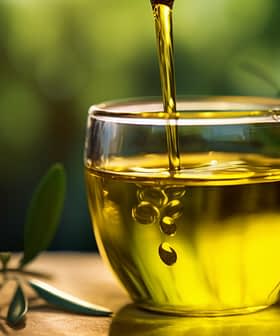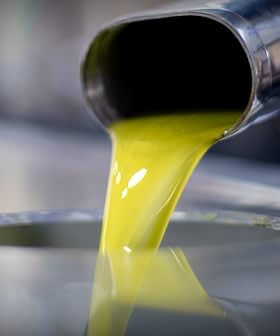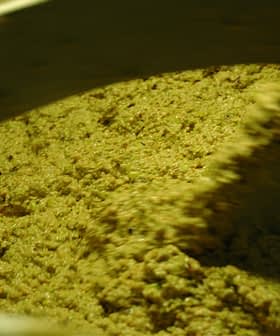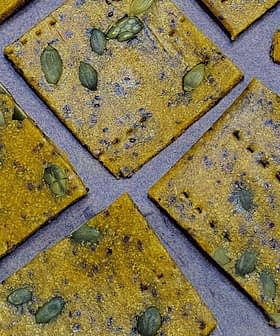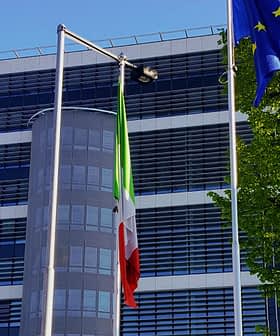Extra Virgin Olive Oil Polyphenols May Provide Protection Against Platelet Aggregation in Cardiovascular Disease
Polyphenols in EVOO inhibit the platelet aggregation that can lead to abnormal clotting and increase the risk of heart attack and stroke.
Researchers have discovered that cardiovascular disease (CVD) is driven by chronic inflammation, with platelet aggregation playing a key role in the initiation of CVD. A study found that specific phenolic compounds in different types of extra virgin olive oil can impact platelet aggregation and oxylipin production, with oleocanthal showing the greatest influence.
Researchers now recognize that cardiovascular disease (CVD) is activated and driven by a state of low-grade chronic inflammation in the body. As a result of inflammation, CVD is thought to be initiated by platelet-dependent processes.
Platelet aggregation is a process whereby blood platelets (cells) adhere to each other to form clots in relation to injury in the body. Platelet aggregation also occurs at sites of vascular injury. For example, in response to injury and inflammation in arteries. In relation to CVD, reducing platelet aggregation is important because it can result in abnormal clotting that can increase the risk of heart attack and stroke.
See Also:Olive Oil Health Benefits
Oxylipin production relates to oxygenated lipids — eicosanoids such as prostaglandins (cyclooxygenase‑1 (COX‑1) and cyclooxygenase‑2 (COX‑2) and leukotriene — in the body involved in modulating and regulating immune responses, including immune responses caused by inflammation.
extra virgin olive oil contains more than 36 phenolic compounds. Although all of the phenolic compounds inextra virgin olive oil have known beneficial effects, a recent study, co-sponsored by Gaea and the Captain Vassilis Foundation, in cooperation with the University of California, Davis and the US Department of Agriculture, shows that the health benefits provided byextra virgin olive oil may be influenced by the type and the qualities each individualextra virgin olive oil variety provides.
In the study, specificextra virgin olive oil samples were screened to identify samples high in oleocanthal, oleacein, oleuropeinaglycon and ligstrosideaglcon polyphenols.
Theextra virgin olive oil samples were selected from supermarket ranges and final samples chosen included “an oil of Mediterranean origin obtained from a supermarket in California (Oil A), an Arbequina variety oil provided by Corto Company from California (Oil B), and a Koroneiki variety oil from Kalamata, Greece (Oil C).” All oils were matched in total polyphenol content but contained differing levels of oleocanthal, oleacein and tyrosol. Oil A higher in tyrosol, Oil B higher in oleacein, and Oil C higher in oleocanthal.
Nine healthy males participated in the randomized, blinded, controlled crossover design study and were instructed to consume 40 mL of the threeextra virgin olive oil samples on three consecutive visits, with a control sample of Ibuprofen (400 mg) provided on the fourth visit.
Blood samples were collected immediately before and two hours after consumption of theextra virgin olive oil samples or Ibuprofen. Platelet-rich blood samples were stimulated and subjected to aggregometry and analyzed for platelet responses and reduction of COX-dependent oxylipins.
The results show that Oils B, C and Ibuprofen decrease platelet aggregation. Ibuprofen was the only intervention to significantly decrease oxylipin concentrations. Rather than total phenolic content being of interest, the authors conclude that the phenolic composition ofextra virgin olive oil influences collagen-stimulated platelet activity.
Inhibition of platelet aggregation and oxylipin production is correlated with consumption dose of oleocanthal, oleacein and tyrosol per mg/kg weight. Though, in Oil C both platelet aggregation and oxylipin were significantly correlated, which was not the case with other oils and indicates that oleocanthal influences platelet aggregation more significantly than the other oils, while oleacein appears to be a more potent effector of oxylipin production.
So, while oleocanthal does appear to have the greatest impact, oleacein and tyrosol contribute to the effects in a less potent manner.
Previous studies have shown that oleocanthal exhibits the same anti-inflammatory response in the body as NSAID Ibuprofen, acting down the exact same pathways as a non-steroidal anti-inflammatory at approximately 10 percent the potency. Oleocanthal has been shown to stop the inflammatory cascade by inhibiting both COX‑1 and COX‑2 inflammatory enzymes in a dose-dependent manner.
But interestingly, this new study shows that the effects ofextra virgin olive oil on platelet aggregation have no relation to COX inhibition, “suggesting an upstream effect possibly associated with calcium mobilization or blockade of the physical aggregation process.”
The researchers suggest we now need further research in this area to confirm these findings and consider “time course, dose-response, and a greater variety of source oils to determine the optimal dose.”


